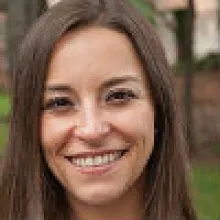“Wake up humanity, there is no time left!”
Berta Cáceres, Goldman Prize acceptance speech, 2015
By María José Veramendi Villa (originally published in Disrupt&Innovate)
Being an environmental human rights defender in Latin America is not an easy task. On the contrary, it is one of the most dangerous jobs you can have. Whether you belong to an indigenous, afro-descendant, or peasant community, whether you are an independent activist or affiliated with a civil society organisation, you are at risk.
In its most recent report, On Dangerous Ground, Global Witness documented 2015 as the worst year on record for killings of land and environmental activists.[1] The report documented 185 killings in 16 countries, making Brazil (50 killings), Colombia (26 killings), Peru (12 killings), and Nicaragua (12 killings) the most dangerous in Latin America.[2]
Unfortunately, the murder of environmental defenders represents a tragic end of the road of a larger problem. We, as a society, all want economic and social progress and governments are mostly elected on this promise. However, increasingly States and various private actors are routinely complicit in actions that aim to silence legitimate voices and the work of environmental defenders. Threats, harassment, and campaigns to discredit or criminalize take a toll on the work of environmental defenders, who end up spending significant time defending themselves before often-complicit criminal justice systems, or even physically protecting themselves from attempts on their lives.
Several United Nations Special Rapporteurs and the Inter-American Commission on Human Rights have recognised the important role that environmental defenders play in our societies and, as such, have recommended that States protect them. Nevertheless, the level of danger has continued to rise. Environmental defenders such as Berta Cáceres, whose lives should be protected by precautionary measures recommended by the Commission, continue being threatened or murdered in plain view of authorities — often with the complicity of a State. The Yanacocha mining company keeps harassing Máxima Acuña with the intent of forcing her out of her house to make way for the Conga Mining project, even after a Peruvian Court determined that she had not violated the company’s property rights.
In La Oroya, a Peruvian Andean city, a metallurgical complex has operated since 1922. Dozens of victims of toxic pollution have been struggling for years to defend their health and environment, and keep seeking remedy in national and international courts. Their struggle has been plagued by attacks and campaigns to discredit them and the organizations that have assumed their legal representation. They have been labeled “anti-mining” and “anti-development,” harassed in the streets, and intimidated with hanging dead dogs in front of their houses.
The list of such incidents in Latin America just keeps getting longer. Poorly planned and developed mines, dams, and other infrastructure projects are linked to them. As members of societies that strive for economic and social development, we need to stop pretending that these and other countless attacks against environmental defenders do not happen or have no impact on the financial, political and social costs that we all end up paying eventually. The costs will come and they will be high. Governments need to wake up now and take action to defend the defenders. There is no time left!
To the memory of those who have died defending something that should be precious to all but somehow is cared for by a few: our earth.
María José Veramendi Villa

María José Veramendi Villa was AIDA senior attorney for the Human Rights and Environment Program. She is a Peruvian lawyer with degrees from the Universidad de Los Andes in Bogota, Colombia and the Pontificia Universidad Católica del Perú. She has a diploma in Women and Human Rights: Theory and Practice from the Universidad de Chile and an LLM (Master of Laws) in International Legal Studies with a specialization in human rights from the American University Washington College of Law. Previously, she was a researcher in the Human Rights Program at the Universidad Iberoamericana in Mexico City, and worked as a human rights lawyer for the Inter-American Commission on Human Rights (IACHR) and as a lawyer at the Legal Defense Institute in Peru. She has worked as a teacher and lecturer of various courses and seminars, and has been published in an array of publications on the subject.
